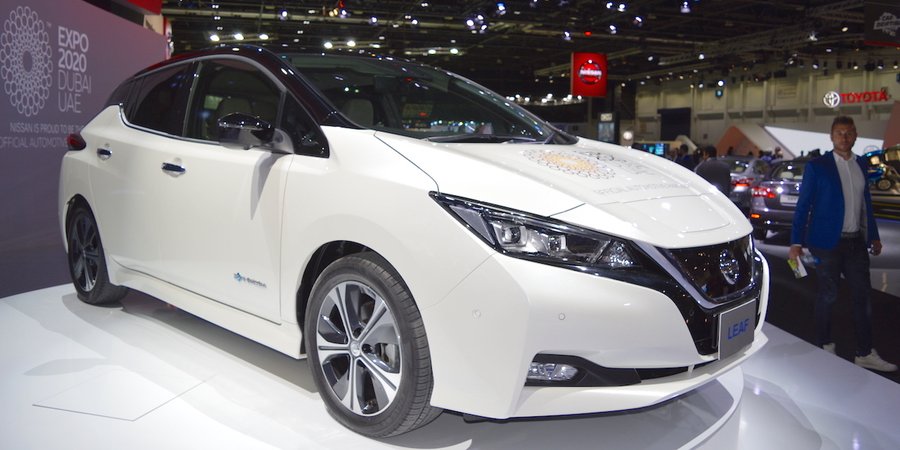2018 Nissan Leaf showcased at the 2017 Dubai Motor Show

Just two days later, Nissan had put it on display at the 2017 Dubai Motor Show.
The 2018 Nissan Leaf is the second generation of the world's best-selling electric car. Nissan has completely redesigned the EV's design with inputs from the Nissan IDS Concept and its latest production models. Sleek LED headlamps with a floating boomerang signature, V-motion grille featuring a clear-blue 3D mesh pattern with a "freezing" motif inside it, a signature floating, two-tone roof, 17-inch aero design wheels, diffuser-style rear bumper with blue highlights and LED rear combination lamps are some of the 2018 Nissan Leaf's noteworthy exterior elements.
Inside, the car looks even more conventional and closer to other Nissan models now. Flat-bottomed steering wheel, 7-inch full-colour driver information display, 7-inch touchscreen infotainment system navigation, Apple CarPlay and Android Auto and blue stitching in the seats are the highlights here.
Nissan has increased driving comfort with the addition of e-Pedal technology, which lets drivers start, accelerate, decelerate and stop by increasing/decreasing the pressure applied to the accelerator. Parking the car is now more convenient, thanks to ProPILOT Park, which controls every operation required for parking, including acceleration, braking, shifting, turning the steering wheel and applying the parking brake. The redesigned Leaf features ProPILOT single-lane autonomous driving technology for highway usage as well.
The 2018 Nissan Leaf is powered by the new EM57 electric motor that generates 150 PS and 320 Nm of torque. A 40 kWh battery pack is standard. It takes 16 hours using a 3 kW charger/8 hours using a 6 kW charger to fully charge the battery pack. Using a quick charger, though, the charging time from alert to 80% battery capacity takes only 40 minutes. The second-gen Nissan Leaf's has a driving range (JC08 test cycle) of 400 km.
Related News


